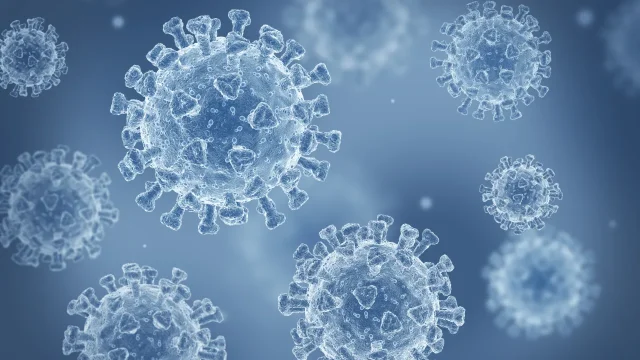A new Covid-19 variant, NB.1.8.1, has been identified in Mauritius. This subvariant is a mutation of the Omicron strain and was confirmed by Dr. Fazil Khodabocus, the acting director of health services, after it was detected in mid-March during testing of patients with flu-like symptoms and fever.
While the variant shows increased transmissibility, there is currently no evidence that it causes more severe illness.
Health authorities are urging the public to remain vigilant. Dr. Khodabocus emphasized the importance of monitoring the situation and advised against downplaying acute respiratory infections.
He recommended that anyone experiencing symptoms such as cough, fever, or unusual fatigue should see a doctor, rest at home if necessary, and avoid spreading the virus to others.
As winter approaches and respiratory viruses circulate more widely, basic hygiene practices are strongly encouraged.
These include covering your mouth and nose when coughing or sneezing, disposing of used tissues in closed bins, wearing masks in enclosed or poorly ventilated spaces, and washing hands regularly.
The Ministry of Health also strongly recommends flu vaccinations, especially for vulnerable groups such as seniors, pregnant women, children, and individuals with chronic conditions like diabetes, asthma, or heart disease.
Recent statistics show a rise in acute respiratory infections, with 4,065 cases reported from May 19 to 25, up from 3,726 the previous week.
This increase has prompted health officials to reiterate their calls for caution.
Dr. Khodabocus anticipates that more cases of NB.1.8.1 will emerge due to high population mobility and the absence of travel restrictions.
He noted that the virus will continue to mutate, which is its nature. To bolster immunity, he recommends getting adequate sleep, engaging in regular physical activity, and maintaining a balanced diet rich in fruits and vegetables.
He also stressed the importance of managing health for those with chronic illnesses.
Virologist Dr. Shameem Jaumdally agreed, stating that while NB.1.8.1 is highly transmissible, it is not more dangerous than previous variants.
He pointed out that Covid-19 is not a seasonal illness like the flu but evolves with new variants.
He noted that this subvariant may partially evade the immune system, making it more transmissible.
There is no need for panic at this time, as no specific health measures are currently planned. Dr. Jaumdally reassured the public that we are in an endemic phase.
While reinfections are possible, severe cases remain rare, except among high-risk individuals. He also recommends wearing masks in certain situations and encourages flu vaccinations, which are still available.
WHO Monitors New SARS-CoV-2 Variant NB.1.8.1
The World Health Organization (WHO) classified the SARS-CoV-2 variant NB.1.8.1 as a “variant under surveillance” on May 23, 2025. By April 2025, this variant accounted for 10.7% of cases worldwide.
It evolved from the recombinant XDV.1.5.1 variant and carries mutations on its spike protein, which could increase its spread and reduce the effectiveness of neutralizing antibodies.
Despite these concerns, WHO states the overall health risk remains low globally.
Current COVID-19 vaccines are expected to continue protecting against severe and symptomatic illness caused by this variant.
Although some countries are experiencing more cases and hospitalizations, there’s no evidence yet that NB.1.8.1 causes more severe disease than other circulating variants.
Rise in Chikungunya and Dengue Cases
In Mauritius, about 25 to 30 chikungunya cases are reported daily, according to Dr. Fazil Khodabocus, acting director of health services.
Since March 15, 2025, a total of 738 chikungunya cases have been recorded across various regions, with over 160 still active.
The recent rains have boosted mosquito breeding, increasing the risk of transmission. Dr. Khodabocus recommends wearing protective clothing, using repellents, and eliminating mosquito breeding sites to prevent bites and control the spread.
He also warns that some coastal areas remain warm despite the start of winter, making residents more vulnerable.
All residents are urged to take precautions seriously. As for dengue, 43 cases have been reported since mid-March, with two still active.
In summary, the key message during this winter season is to stay vigilant.
Source: Defi Media















